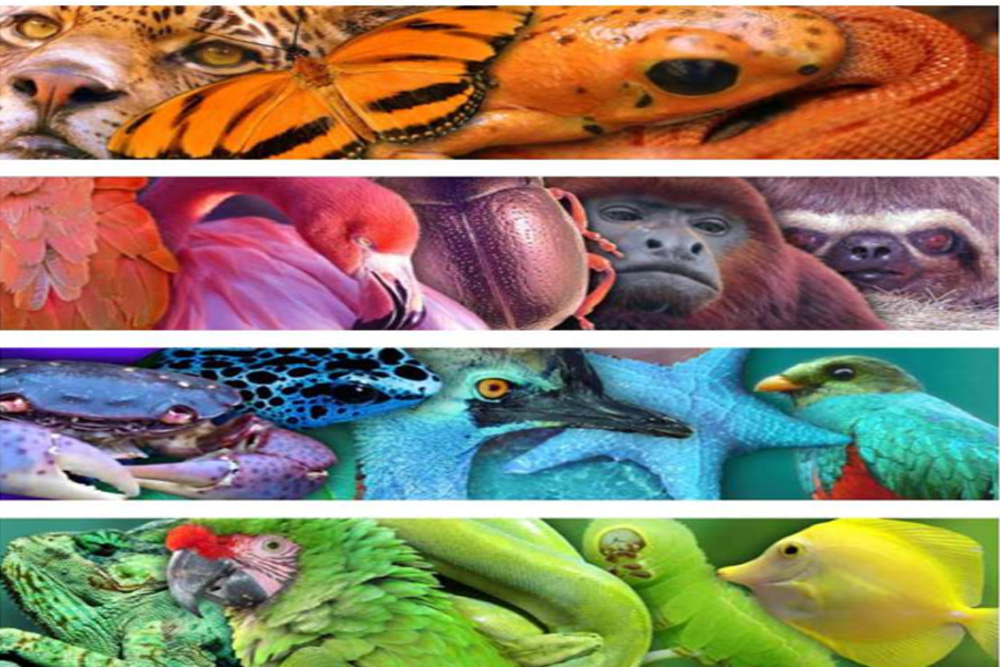The Intricate Ecology of Exotic Ecosystems and Habitats

The intricate ecology of exotic ecosystems and habitats is a fascinating topic that has gained significant attention in recent years. Exotic ecosystems are those that are formed by introducing non-native species into a new environment, leading to significant changes in the ecosystem. This can have both positive and negative impacts on the environment, making it a complex area of study.
Exotic ecosystems and habitats are found all over the world, from tropical rainforests to arid deserts. These environments are often highly diverse, containing a wide range of flora and fauna that may not be found in their native habitats. However, the introduction of non-native species can also disrupt the delicate balance of the ecosystem and lead to a number of ecological problems.
Related articles
1- Treat Your Pet Like Family: 10 Fun Activities to Do Together
2- Keep Your Pet Healthy and Happy with Regular Veterinary Check-ups
3- How to Keep Your Pets Mind Sharp with Unique Games and Foods!
4- From Fat to Fit: Home Exercises for Your Obese Pet
One of the main challenges of studying exotic ecosystems is understanding how these new species interact with their environment. This can include examining the role of these species in the food chain, their impact on the local climate, and how they compete with native species for resources. In some cases, non-native species can become invasive, outcompeting native species and leading to a decline in biodiversity.
Despite these challenges, exotic ecosystems can also provide important ecological benefits. For example, they may be more resilient to climate change or offer new opportunities for scientific research. Additionally, they can provide important economic benefits, such as through the development of new crops or the creation of new tourist destinations.
Overall, the study of exotic ecosystems and habitats is a complex and multifaceted area of research. While there are many challenges associated with introducing non-native species to new environments, it is also an area of great potential for ecological and economic development. By continuing to study these ecosystems and better understand their intricacies, we can work towards creating a more sustainable and harmonious relationship between humans and the natural world.
To better understand the intricate ecology of exotic ecosystems, researchers use a variety of tools and techniques. This includes field studies to observe and document the interactions between different species, genetic analysis to identify the origin and genetic makeup of non-native species, and computer modeling to predict how the ecosystem may respond to different scenarios.
One area of particular concern is the impact of exotic species on native species. In some cases, non-native species can outcompete native species for resources such as food and habitat, leading to a decline in biodiversity. This can have cascading effects throughout the ecosystem, as many species are interdependent and rely on each other for survival.
To mitigate the negative impacts of exotic species, conservationists and policymakers have developed a range of strategies. These may include the removal or control of non-native species, the restoration of native habitats, and the establishment of protected areas to preserve biodiversity. Additionally, education and outreach efforts can help raise awareness about the importance of protecting and preserving ecosystems.
Overall, the future of exotic ecosystems and habitats will depend on our ability to understand and manage the complex interactions between species, environments, and human activities. By developing innovative strategies and technologies, and working towards sustainable development goals, we can help to protect and preserve these important ecosystems for generations to come.
- Climate change: The Earth’s climate is changing rapidly, and this is expected to have significant impacts on ecosystems and habitats around the world. Climate change can lead to changes in temperature, rainfall patterns, and sea level rise, which can in turn impact species distribution, food availability, and ecosystem dynamics.
- Loss of biodiversity: The world is currently experiencing a major loss of biodiversity, with many species going extinct or becoming endangered due to habitat destruction, climate change, and other factors. This loss of biodiversity can have significant ecological and economic impacts, including reduced ecosystem services and loss of potential sources of new medicines and other products.
- Invasive species: The introduction of non-native species to new environments can have both positive and negative impacts, but invasive species can be particularly problematic. Invasive species can outcompete native species, alter ecosystem dynamics, and lead to declines in biodiversity.
- Technology and innovation: Advances in technology and innovation are creating new opportunities for conservation and management of ecosystems and habitats. For example, remote sensing and drone technology can be used to monitor ecosystems and track changes over time, while genetic engineering and biotechnology may offer new ways to control invasive species and protect biodiversity.
- Sustainable development: Achieving sustainable development is a critical goal for the future, and this requires a balance between economic growth, social equity, and environmental protection. Efforts to promote sustainable development may include initiatives to reduce greenhouse gas emissions, promote renewable energy, and implement policies to protect biodiversity and ecosystem services.
Overall, the future of exotic ecosystems and habitats will depend on our ability to understand and manage the complex interactions between species, environments, and human activities. By developing innovative strategies and technologies, and working towards sustainable development goals, we can help to protect and preserve these important ecosystems for generations to come.
In conclusion, the study of the intricate ecology of exotic ecosystems and habitats is crucial for our understanding of the natural world and for our efforts to protect and preserve it. While the introduction of non-native species to new environments can have significant impacts, it also offers opportunities for scientific discovery and economic development. However, it is important to approach these ecosystems with caution and to develop effective strategies for managing them to minimize negative impacts on native species and the environment. By working towards sustainable development goals and continuing to research and monitor these ecosystems, we can help to ensure a healthy and harmonious relationship between humans and the natural world for generations to come.
Sobre o Autor




0 Comentários